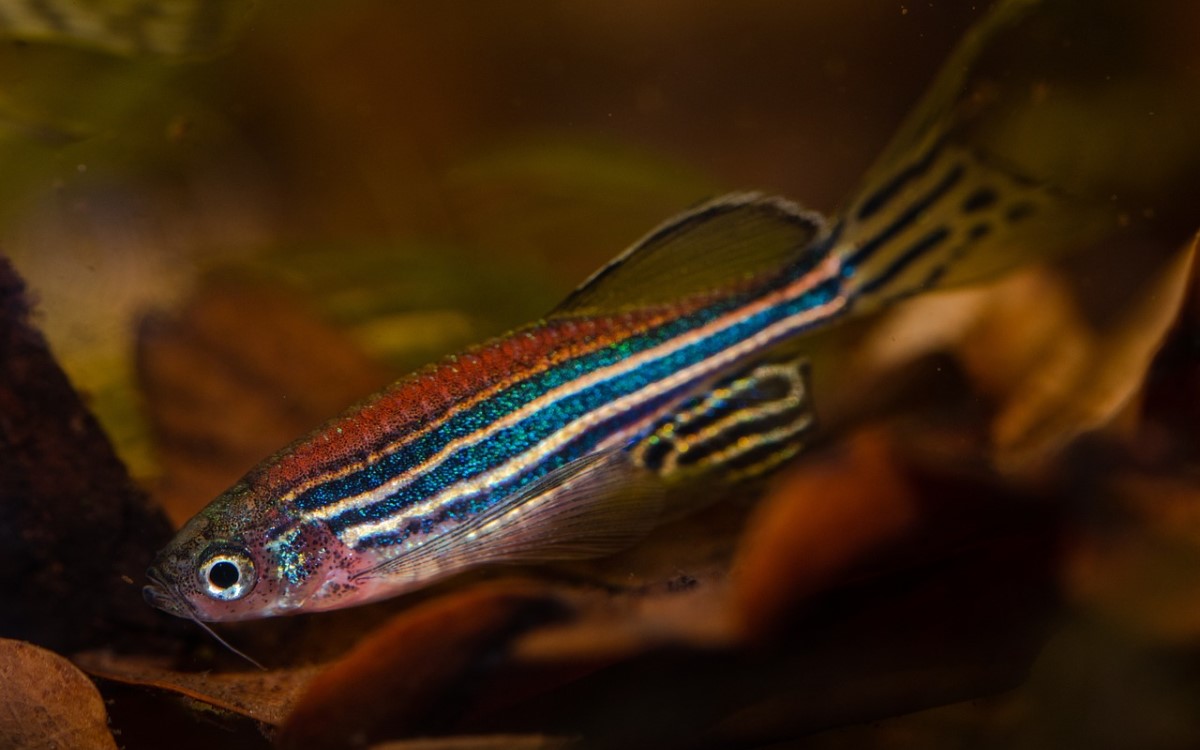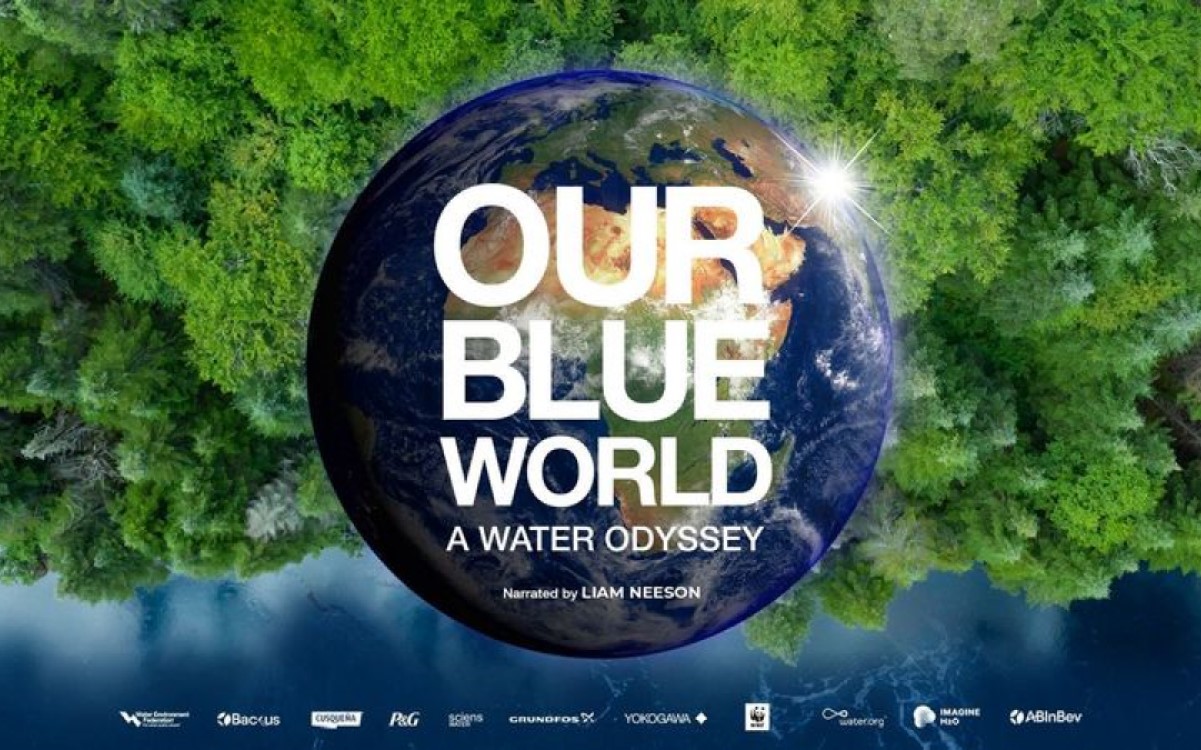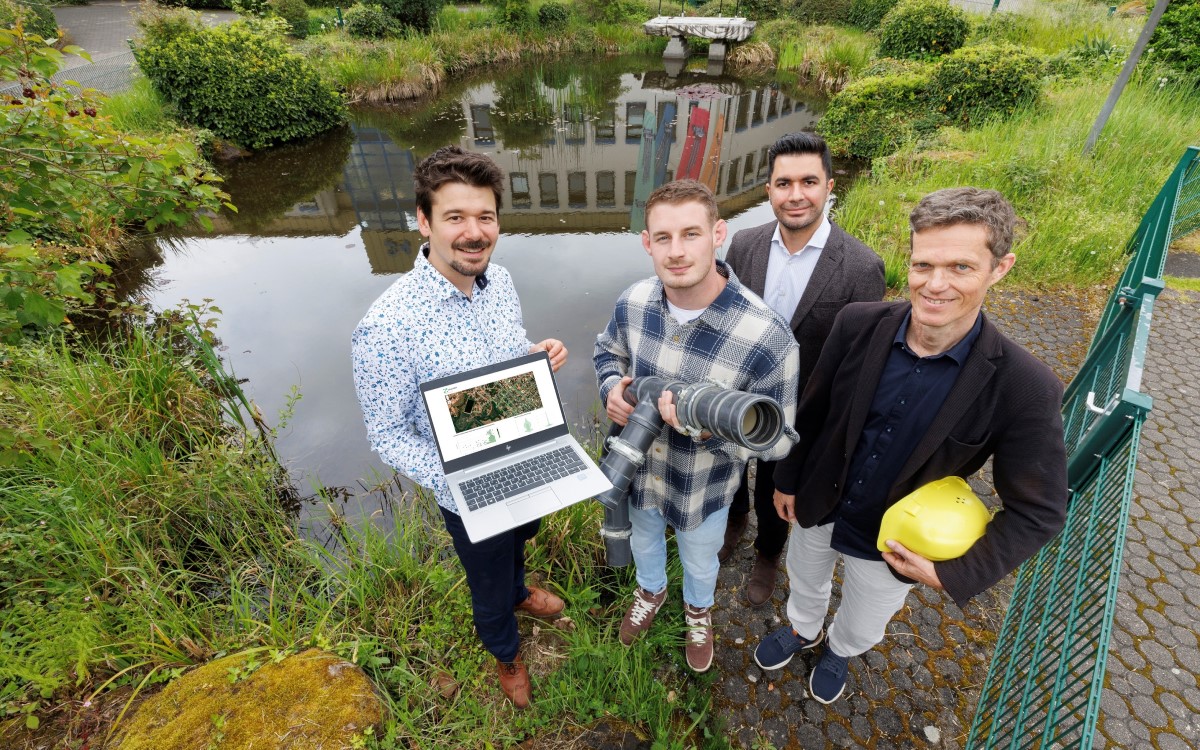17. January 2024 ǀ The “gwTriade” project, recently initiated and coordinated by Goethe University Frankfurt along with six other institutes, is pioneering the use of a triad approach to investigate groundwater quality in Germany.
The goal is to create a concept that allows water suppliers and conservation authorities to independently evaluate groundwater quality. The project is funded by the Federal Ministry of Education and Research.
Climate change and groundwater quality
Climate change is increasingly threatening our groundwater due to more frequent and prolonged droughts that lower groundwater levels. In areas like the Rhine-Main, groundwater is already being supplemented with surface water, which often contains treated wastewater and potential pollutants. Climate change also leads to more frequent heavy rainfalls, causing a large influx of pollutants into the groundwater. Consequently, over a third of all groundwater bodies in Germany do not meet good chemical status. The European Water Framework Directive provides the legal basis for groundwater quality assessment. However, as Professor Henner Hollert from the Institute of Ecology, Diversity and Evolution at Goethe University Frankfurt points out, a “huge amount of investigation” is still needed. Chemical analyses have identified some groundwater pollutants, including drugs, pesticides, and perfluoroalkyl substances (PFAS), which come from wastewater, traffic, or agriculture.
“What we don’t have at all is effect-based data, i.e., data about how the pollutants impact life in the groundwater ecosystem and also human health. We already know a lot about surface water, but not about the groundwater.”
The gwTriade project: An integrative approach
The “Ecological and Ecotoxicological Groundwater Quality Monitoring based on an Integrative Triad Approach” (gwTriade) project aims to fill this knowledge gap. The triad approach merges three scientific pillars: chemical analyses, bioassays, and studies of biocenosis, or the interactions among organisms in a specific habitat. The key is to integrate the results from these three methodologies into a comprehensive assessment of the ecological status.
“We are the first to apply the triad approach to groundwater,” emphasizes Hollert. “It gives us a good overview. We can see what pollutants are in the groundwater, and how they affect organisms and biological systems – both under laboratory conditions and in the field.”
Collaborative efforts and testing methodologies
The gwTriade project is a collaborative effort involving six institutes, with tasks distributed among them. The project is coordinated by Hollert and his colleague Dr. Sabrina Schiwy, who conduct tests using a suite of bioassays recently proposed to the European Commission for environmental monitoring. The testing systems include cell culture systems, zebrafish embryos, algae, and Daphnia (tiny water fleas).
Schiwy explains the use of Daphnia: “We first test the effects of pollutants in the unaltered groundwater samples. Then, we dilute the samples, reducing the concentrations of pollutants, and observe the effects. This allows us to determine which dilutions of groundwater pollutants cause specific effects in Daphnia.”
For instance, if a substance with reproductive toxicity is present, the water fleas do not reproduce as much as they normally would. In zebrafish embryos, neurotoxic effects may occur, leading to behavioral changes.
“ Zebrafish have a typical swimming behavior pattern,” Schiwy explains. “In light conditions, they exhibit relaxed behavior. If it suddenly becomes dark, they swim in frantic zigzags.”
This behavior is due to the potential threat of a predator. To determine whether the fish larvae exhibit this normal behavior in the lab, they are subjected to an alternating light and dark regime in a special experimental setup. If the fish do not react, this could indicate that pollutants have affected their nervous system. If such an effect is suspected, the neurotoxic effect is further characterized using molecular biology methods. Hollert adds that these behavioral tests are not only about ecotoxicological aspects but are also relevant to human toxicology. Studies involving the early stages of zebrafish, an alternative to traditional animal experiments, are a well-established model in environmental medicine.
“Zebrafish are vertebrates, which means that the results provide indications about possible effects in humans. We can draw conclusions for the protection of human health.”
Comprehensive analysis and collaborative efforts
In addition to the bioassays conducted in Frankfurt, the IWW Water Centre in Mühlheim an der Ruhr and the Zweckverband Landeswasserversorgung (state water supply association) in Langenau also perform chemical analyses. The IWW particularly analyzes PFAS contamination and investigates the geosystem, providing a geochemical, hydrochemical, and hydraulic description of the groundwater sample sites. The University of Kaiserslautern-Landau (RPTU) conducts the third type of investigation, examining the composition of groundwater fauna, including Cyclops and rotifers, using taxonomic and modern molecular biology methods. With e-DNA analyses and metabarcoding, it is possible to detect genetic fragments of all organisms that have lived or currently live in the water, enabling research into the entire community of organisms in the groundwater. The Institute of Groundwater Ecology (IGÖ) in Landau lends its expertise in groundwater ecology and the identification of new groundwater organisms for bioassays.
Developing an integrative assessment concept
The gwTriade scientists aim to develop a concept for the integrative assessment of groundwater quality that can be used by regional and national bodies throughout Germany responsible for groundwater, such as water suppliers and nature conservation authorities.
Hollert states, “Our assessment system provides a guide on how they can apply the methods for monitoring groundwater quality, and how the collected data can be examined and contextualized.”
The task of identifying potential users and clarifying their needs is undertaken by the Institute for Social-Ecological Research (ISOE) in Frankfurt. It also seeks to identify potential future conflicts relating to groundwater use, such as conflicts between using groundwater as a resource and protecting the ecosystem. Hollert and Schiwy emphasize that from a biological viewpoint, groundwater is also a habitat, a perspective that has not received enough attention until now.
More information






